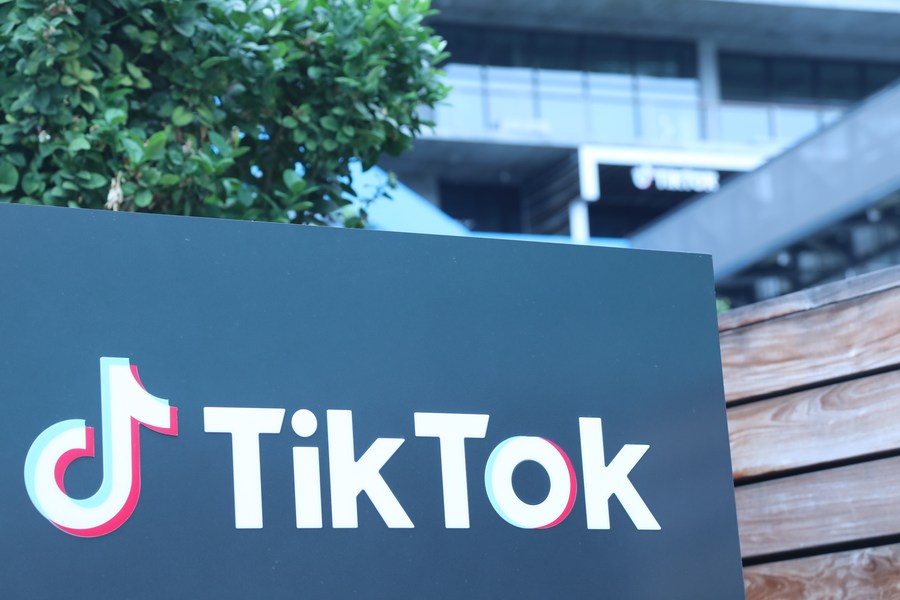Can Global Internet Be Saved?

Though undoubtedly less than pleased to see their country’s most prominent technology and internet firms losing access to overseas markets, China’s leaders and policymakers are not entirely unreasonable, and likely understand the inherent imbalances in which China’s own digital sphere remains largely closed to foreign players, while expecting overseas markets to remain open to China’s.
For tech news-watchers suffering from “TikTok fatigue,” we may be finally experiencing a bit of a respite. After a whirlwind of headlines throughout the past few months, a US federal court has ordered a delay of the Trump administration’s ban on the popular short-video app. With the election less than one month away, it appears that further actions of the US government in handling TikTok will be pushed either to Trump’s second term or be passed on for a Biden administration to manage.
Regardless of the eventual outcome, one thing has become clear: The United States is currently not structurally prepared to deal with a global internet that is not exclusively dominated by US firms.
While those in Chinese and US media alike have dismissed US officials’ concerns over TikTok’s Chinese ownership, it should be noted that concerns over foreign management of data, the influence of media, and regulation of foreign operators in domestic digital economies are nothing new. For most countries in the world, these are decades-long concerns. What is unique in this case for the US is that it is one of the first situations where the shoe is on the other foot.
A new “multi-polar” digital world
For much of the internet’s history, the United States has functioned as its technological and entrepreneurial epicenter: The largest and most innovative firms were based in the US, as was the capital, the expertise, and the most sought-after consumer market. In many ways, to be connected to the internet was to be connected to the United States by default.
In the case of China most notably, US dominance over the internet posed a serious dilemma: technological and economic development would not be possible without fully optimizing the potential of the internet. However, in view of the facts that Washington is always trying to “change” China in favor of US interests and contain China’s rise – right now the US policy on China has become unprecedentedly hostile – fully embracing the US-led global internet would potentially pose risks to the country’s national security.
Yet it is quickly becoming a worldwide consensus that nations must take steps to regulate the internet within their borders, a concept which could broadly be defined as “internet (or cyber) sovereignty,” and a notion which China’s officials have sought to encourage as a global norm.
In the case of the European Union, the most notable implementation of this has come in the form of the General Data Protection Regulation (GDPR) which came into effect in May of 2018. Though with different objectives than China’s regulations, GDPR nevertheless established a set of rules and principles through which the cyberspace of the single market could be governed in accordance with what the EU considers to be its interests. What is most notable in the legislation is its emphasis on personal data privacy rights, an approach that has received praise from many, yet also faces criticism as being harmful to Europe’s economic development.
In the case of India, its interpretation of internet sovereignty has lacked the formality and legal comprehensiveness of Europe’s. Nevertheless, it has quickly taken form in recent years. One principle it appears to be adopting is to use access to the country’s digital marketplace as a geopolitical weapon. Amidst heightening territorial tensions along its border with China, India responded by outright banning Chinese apps throughout the country, including TikTok.
In the United States, the Trump administration has attempted to establish internet sovereignty in the fashion that has characterized this current White House: chaotically, with a poorly-communicated sense of purpose. On August 6, an executive order announced a ban on both TikTok and WeChat in the United States if US operations were not sold by September 18. However, both bans have been delayed or struck down by US courts.
Indeed, addressing such concerns through White House executive orders is unlikely to provide sustainable solutions. If anything, it creates what has been compared to a game of “whack-a-mole,” a dynamic in which US presidential administrations ban whichever apps pose a real or perceived national security threat, based purely upon the discretion of administration officials.

Internet law and global norms for a sustainable digital future
Within the United States, there is a growing chorus calling for a national privacy law for personal data, drawing from some precedents set by Europe, China, and others, while also maintaining the core ideological, economic, and legal principles with which Americans identify. Such a framework would establish clear rules of the road for international players who would like to compete in America’s digital economy and ensure improved procedural justice for individuals and corporate entities alike.
Perhaps most importantly, such regulation, if prudently crafted, could help to prevent further division of sovereign digital spheres, and ensure that the internet is able to maintain its global integration and connectivity. Concerns over data security, media influence, and digital market access may be relatively new in the United States, but China has wrestled with them for decades.
If one were to take an optimistic view, such grounds could provide a starting point for tackling issues of digital sovereignty when or if bilateral negotiations between the two countries continue. Historically, relations between the two nations have frayed over areas where non-negotiable first principles differ: disputes over territorial sovereignty, human rights, or the processes through which legal and political legitimacy is recognized are all issues over which concessions have been few or nonexistent.
Where there has been progress between the two sides, however, is through issues of economic and business interests. Though undoubtedly less than pleased to see their country’s most prominent technology and internet firms losing access to overseas markets, China’s leaders and policymakers are not entirely unreasonable, and likely understand the inherent imbalances in which China’s own digital sphere remains largely closed to foreign players, while expecting overseas markets to remain open to China’s.
On these grounds, it seems possible that progress could be made. After all, there are many in China who believe it is in the country’s best interest to have both a more open internet at home as well as to see its firms play bigger roles abroad.
As it currently stands, the Trump administration’s approach offers none of those things. Until a US administration does, the future of the global internet looks to be only becoming more divided and chaotic.
Elliott Zaagman is the co-host of the China Tech Investor podcast and a regular contributor to The Lowy Institute’s Interpreter blog, Al Jazeera English, and CGTN. He focuses on China, the United States, and the intersection of technology, financial markets, and geopolitics.
 Facebook
Facebook
 Twitter
Twitter
 Linkedin
Linkedin
 Google +
Google +



